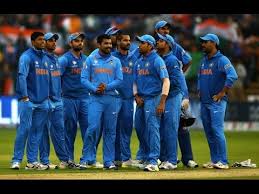Cricket Serves as a Diplomatic Tool in India-Pakistan Relations
The Indian and Pakistani National Cricket Teams faced off in a World Cup duel in Kolkata on March 19. Led by its Vice-Captain, the Indian team decisively won the match. However, the widespread implications of the match stretch far beyond the boundaries of the cricket grounds of Kolkata, India, especially during this tense period for India-Pakistan relations. The match marked the first time the Pakistani cricket team played a match in India since 2012. Planned tours before 2012 were abandoned after negotiations broke down. Just last year, a bilateral series was proposed and abandoned. The 2015 series was scheduled to be played in India, but the Pakistan Cricket Board (PCB) and Board of Cricket Control in India (BCCI) could not resolve security concerns. The board also failed to come to an agreement to have the series in a neutral country, such as the United Arab Emirates or Sri Lanka. Ultimately, the series was abandoned when the respective governments halted negotiations.

Controversy was also markedly present at the recent match. The contest, a group stage match in the T20 World Cup, was originally scheduled to be played in Dharmsala, a city in the northern state of Himachal Pradesh. The city is famously known as the capital of the Tibetan government in exile. Plans for the two rival nations to play a cricket match in the nucleus of Tibetan Buddhism initially attracted significant attention.
However, in early March, the match was moved to Kolkata in West Bengal after the PCB expressed concerns about the security in Dharmsala. Tensions from India also prompted the Aam Aadmi Party and Congress Party to protest the Pakistan National Team’s arrival to India as they vowed to boycott the match.
With the controversy surrounding the venue and the previous fallout in negotiations, the PCB refused to let the Pakistani team travel to India for the World Cup up until the last minute. Upon arrival, Pakistani captain Shahid Afridi simply stated, “We are cricketers and not politicians.”
Recently, political tensions between the two nations have begun to thaw. On Christmas Day 2015, amid the controversy regarding the abandoned bilateral series, Prime Minister Narendra Modi made a surprise visit to Lahore to celebrate the birthday of Pakistani PM Nawaz Sharif, the first visit by an Indian Prime Minister to Pakistan in 12 years.
Nonetheless, the prevalence of disputes between the two nations illustrate that India-Pakistan relations remain strained. Sports games like the recent cricket match, however, may act as a critical channel for improving the relationship between India and Pakistan.
Sports have served as a soft power tool in diplomacy in the past, particularly as athletes are often considered national heroes. On March 22, the Tampa Bay Rays of Major League Baseball played the Cuban National Team in Havana as American and Cuban political leaders attempted to normalize relations. In a similar vein, should the Indian and Pakistani cricket teams choose to put politics aside and act as ambassadors between the two adversarial nations, the cricket match may be able to influence future diplomatic relations.
